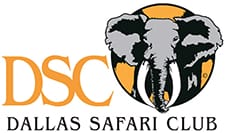
USA -(Ammoland.com)- Now that the hysteria has leveled off at a rolling boil, and level-headed people can now be heard amid the din, perhaps the average citizen is ready to absorb “the rest of the story” about lion hunting, lion hunters and lion conservation.
It’s a story that has little to do with the crime of lion poaching—and it’s important to distinguish the difference.
To help, DSC (Dallas Safari Club) has released a 3-1/2-minute video to explain.
Here’s a transcript of the video:
“I’m Ben Carter with Dallas Safari Club. Recently a situation involving a lion in Zimbabwe has sparked a firestorm of controversy on both a national and international level.
The fuel behind this emotion has been driven, in part, by attempting to humanize a completely wild animal with a human name. Unfortunately, much of the conversation has been driven by passionate—but uninformed—people, as well as some media outlets sympathetic to an anti-hunting agenda.
DSC understands that responsible lion hunting, based on the latest science and wildlife management principals, is an essential component of policies designed to conserve African lions and their habitat for future generations.
As with any game species in Africa, legal hunting—and the money generated by legal hunting—gives lions a tangible value that is irreplaceable in impoverished rural communities. Over the years, one irrefutable fact has been proven in Africa: When hunting goes away, so does the wildlife.
Zimbabwe, the country leading the headlines, provides a perfect example of the benefits of hunters’ dollars directly supporting conservation efforts. The Zimbabwe Parks And Wildlife Management Authority is tasked with the protection of wildlife in Zimbabwe. Over the last five years, approximately 50 percent of the department’s operating budget is derived directly from revenue generated by hunting.
But revenue is only part of the picture. DSC understands that sound lion management, based on science—not emotion—is the key to healthy lion populations across Africa.
In May of 2013, an international assembly of conservationists representing 84 different countries adopted an African lion hunting policy modeled after one advanced by DSC. In January of 2013, DSC announced its definition of the ideal huntable male lion.
Part of DSC’s position is that, and I quote, “The ideal huntable male lion is at least six years of age, and is not known to be part of a coalition heading a pride with dependent cubs.” Extensive scientific research has clearly shown that hunting older male lions has no negative effect on populations.

DSC is pleased that the U.S Fish and Wildlife Service has recognized that fact. The agency identified three main threats currently facing African lions—habitat loss, loss of prey base, and increased human/lion conflicts.
U.S. Fish and Wildlife agency director Dan Ashe has said, and I quote, “I want to be clear that lions are not in trouble because of responsible sport hunting. In fact, the evidence shows that scientifically sound conservation programs that include limited, well managed sport hunting can, and do contribute to the long-term survival of the species.”
DSC has been responsible for funding scientific research on African lions for years. Understanding lion population dynamics is one of many projects supported by DSC grants to advance conservation, education, and hunter advocacy worldwide.
Educating the public on the role of legal, ethical hunting—and its effects on wildlife, and conservation issues—is a priority of DSC. The future of the African lion will depend on science, combined with sound conservation measures, not emotion and media bias.
Thank you.
About Dallas Safari Club (DSC)
Formally introduced in 2015 as an official member of the IUCN, the United Nations’ International Union for the Conservation of Nature, DSC is increasingly recognized as an international leader in conservation. DSC’s mission is conserving wildlife and wilderness lands, educating youth and the general public, and promoting and protecting the rights and interests of hunters worldwide. Get involved at www.biggame.org.
